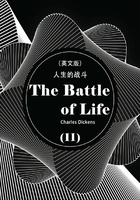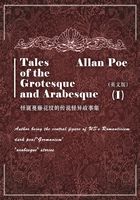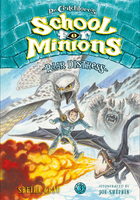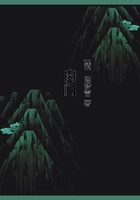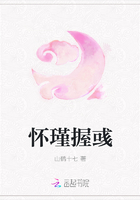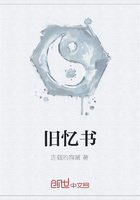Nekhludoff grew especially fond of Kryltzoff, a consumptive young man condemned to hard labour, who was going with the same gang as Katusha. Nekhludoff had made his acquaintance already in Ekaterinburg, and talked with him several times on the road after that. Once, in summer, Nekhludoff spent nearly the whole of a day with him at a halting station, and Kryltzoff, having once started talking, told him his story and how he had become a revolutionist. Up to the time of his imprisonment his story was soon told. He lost his father, a rich landed proprietor in the south of Russia, when still a child. He was the only son, and his mother brought him up. He learned easily in the university, as well as the gymnasium, and was first in the mathematical faculty in his year. He was offered a choice of remaining in the university or going abroad. He hesitated. He loved a girl and was thinking of marriage, and taking part in the rural administration. He did not like giving up either offer, and could not make up his mind. At this time his fellow-students at the university asked him for money for a common cause. He did not know that this common cause was revolutionary, which he was not interested in at that time, but gave the money from a sense of comradeship and vanity, so that it should not be said that he was afraid. Those who received the money were caught, a note was found which proved that the money had been given by Kryltzoff. he was arrested, and first kept at the police station, then imprisoned.
"The prison where I was put," Kryltzoff went on to relate (he was sitting on the high shelf bedstead, his elbows on his knees, with sunken chest, the beautiful, intelligent eyes with which he looked at Nekhludoff glistening feverishly)--"they were not specially strict in that prison. We managed to converse, not only by tapping the wall, but could walk about the corridors, share our provisions and our tobacco, and in the evenings we even sang in chorus. I had a fine voice--yes, if it had not been for mother it would have been all right, even pleasant and interesting. Here I made the acquaintance of the famous Petroff--he afterwards killed himself with a piece of glass at the fortress--and also of others. But I was not yet a revolutionary. I also became acquainted with my neighbours in the cells next to mine. They were both caught with Polish proclamations and arrested in the same cause, and were tried for an attempt to escape from the convoy when they were being taken to the railway station. One was a Pole, Lozinsky; the other a Jew, Rozovsky. Yes. Well, this Rozovsky was quite a boy. He said he was seventeen, but he looked fifteen--thin, small, active, with black, sparkling eyes, and, like most Jews, very musical. His voice was still breaking, and yet he sang beautifully. Yes. I saw them both taken to be tried. They were taken in the morning. They returned in the evening, and said they were condemned to death. No one had expected it. Their case was so unimportant; they only tried to get away from the convoy, and had not even wounded any one. And then it was so unnatural to execute such a child as Rozovsky. And we in prison all came to the conclusion that it was only done to frighten them, and would not be confirmed. At first we were excited, and then we comforted ourselves, and life went on as before. Yes. Well, one evening, a watchman comes to my door and mysteriously announces to me that carpenters had arrived, and were putting up the gallows. At first I did not understand. What's that? What gallows? But the watchman was so excited that I saw at once it was for our two. I wished to tap and communicate with my comrades, but was afraid those two would hear. The comrades were also silent. Evidently everybody knew. In the corridors and in the cells everything was as still as death all that evening. They did not tap the wall nor sing. At ten the watchman came again and announced that a hangman had arrived from Moscow. He said it and went away. I began calling him back. Suddenly I hear Rozovsky shouting to me across the corridor: 'What's the matter? Why do you call him?' I answered something about asking him to get me some tobacco, but he seemed to guess, and asked me: 'Why did we not sing to-night, why did we not tap the walls?' I do not remember what I said, but I went away so as not to speak to him. Yes. It was a terrible night. I listened to every sound all night. Suddenly, towards morning, I hear doors opening and somebody walking--many persons. I went up to my window. There was a lamp burning in the corridor. The first to pass was the inspector. He was stout, and seemed a resolute, self-satisfied man, but he looked ghastly pale, downcast, and seemed frightened; then his assistant, frowning but resolute; behind them the watchman. They passed my door and stopped at the next, and I hear the assistant calling out in a strange voice: 'Lozinsky, get up and put on clean linen.' Yes. Then I hear the creaking of the door; they entered into his cell. Then I hear Lozinsky's steps going to the opposite side of the corridor. I could only see the inspector. He stood quite pale, and buttoned and unbuttoned his coat, shrugging his shoulders. Yes. Then, as if frightened of something, he moved out of the way. It was Lozinsky, who passed him and came up to my door. A handsome young fellow he was, you know, of that nice Polish type: broad shouldered, his head covered with fine, fair, curly hair as with a cap, and with beautiful blue eyes. So blooming, so fresh, so healthy. He stopped in front of my window, so that I could see the whole of his face. A dreadful, gaunt, livid face. 'Kryltzoff, have you any cigarettes?' I wished to pass him some, but the assistant hurriedly pulled out his cigarette case and passed it to him. He took out one, the assistant struck a match, and he lit the cigarette and began to smoke and seemed to be thinking. Then, as if he had remembered something, he began to speak. 'It is cruel and unjust. I have committed no crime. I--' I saw something quiver in his white young throat, from which I could not take my eyes, and he stopped. Yes. At that moment I hear Rozovsky shouting in his fine, Jewish voice. Lozinsky threw away the cigarette and stepped from the door. And Rozovsky appeared at the window. His childish face, with the limpid black eyes, was red and moist. He also had clean linen on, the trousers were too wide, and he kept pulling them up and trembled all over. He approached his pitiful face to my window. 'Kryltzoff, it's true that the doctor has prescribed cough mixture for me, is it not? I am not well. I'll take some more of the mixture.' No one answered, and he looked inquiringly, now at me, now at the inspector. What he meant to say I never made out. Yes. Suddenly the assistant again put on a stern expression, and called out in a kind of squeaking tone: 'Now, then, no nonsense. Let us go.' Rozovsky seemed incapable of understanding what awaited him, and hurried, almost ran, in front of him all along the corridor. But then he drew back, and I could hear his shrill voice and his cries, then the trampling of feet, and general hubbub. He was shrieking and sobbing. The sounds came fainter and fainter, and at last the door rattled and all was quiet. Yes. And so they hanged them. Throttled them both with a rope. A watchman, another one, saw it done, and told me that Lozinsky did not resist, but Rozovsky struggled for a long time, so that they had to pull him up on to the scaffold and to force his head into the noose. Yes. This watchman was a stupid fellow. He said: 'They told me, sir, that it would be frightful, but it was not at all frightful. After they were hanged they only shrugged their shoulders twice, like this.' He showed how the shoulders convulsively rose and fell. 'Then the hangman pulled a bit so as to tighten the noose, and it was all up, and they never budged."' And Kryltzoff repeated the watchman's words, "Not at all frightful," and tried to smile, but burst into sobs instead.
For a long time after that he kept silent, breathing heavily, and repressing the sobs that were choking him.
"From that time I became a revolutionist. Yes," he said, when he was quieter and finished his story in a few words. He belonged to the Narodovoltzy party, and was even at the head of the disorganising group, whose object was to terrorise the government so that it should give up its power of its own accord. With this object he travelled to Petersburg, to Kiev, to Odessa and abroad, and was everywhere successful. A man in whom he had full confidence betrayed him. He was arrested, tried, kept in prison for two years, and condemned to death, but the sentence was mitigated to one of hard labour for life.
He went into consumption while in prison, and in the conditions he was now placed he had scarcely more than a few months longer to live. This he knew, but did not repent of his action, but said that if he had another life he would use it in the same way to destroy the conditions in which such things as he had seen were possible.
This man's story and his intimacy with him explained to Nekhludoff much that he had not previously understood.

